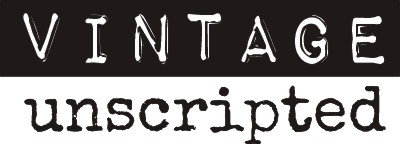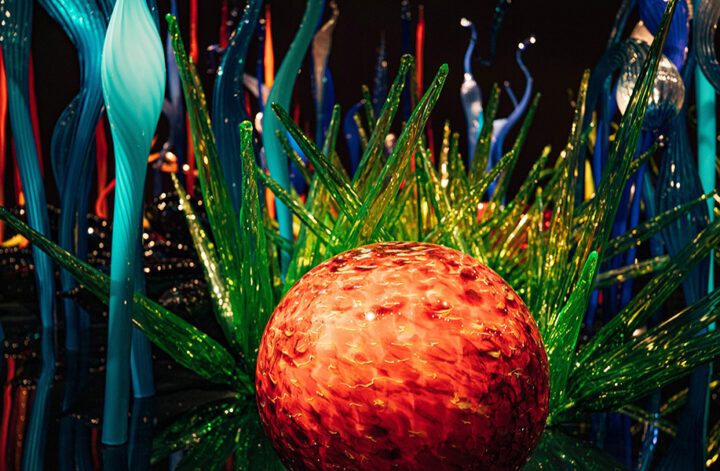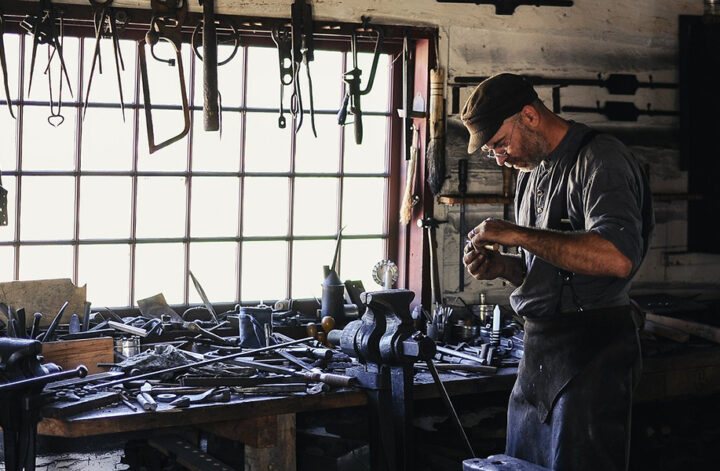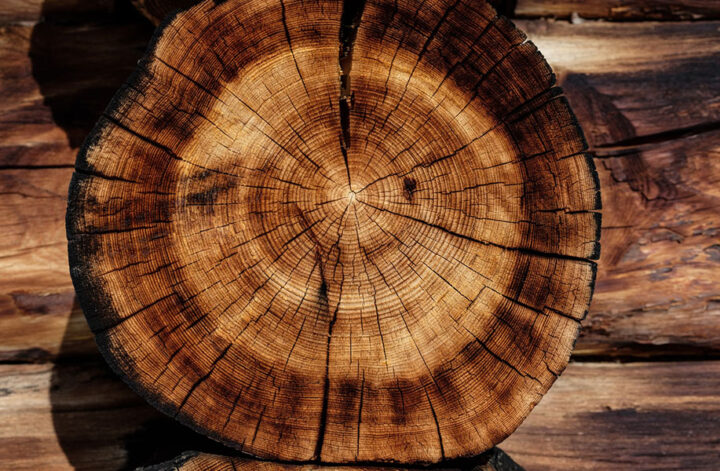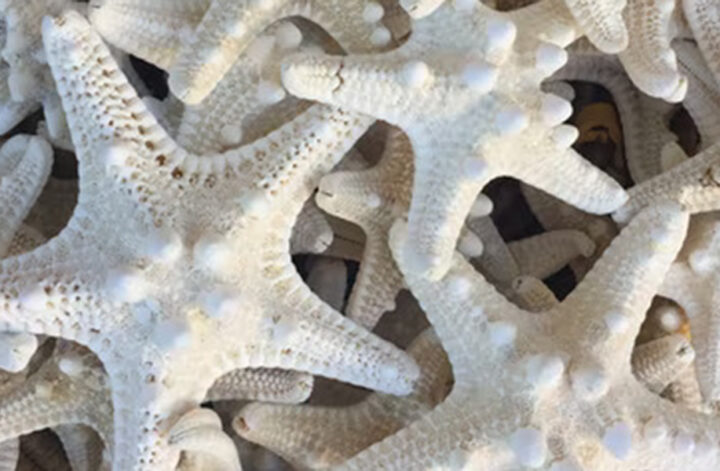One of the challenges of being an online vintage seller is finding the right words to describe your items. Some of those words are so cool they make us feel smart just knowing them. Some are the kind of words that are fun to say. We’re not ones to be stingy with information, so here’s a short and entirely random list of words we’ve used recently to describe vintage items.
AventurineGlass that looks like the mineral aventurine, made by adding gold, silver or chromic oxide (according to the Corning Museum). Very popular in Venetian and Murano glass. “Goldstone” used in jewelry is aventurine glass. |
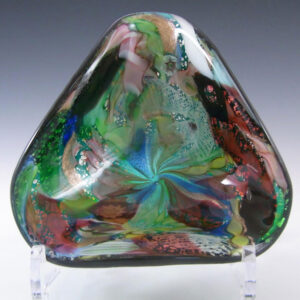 |
Goofus GlassPressed glass that was decorated with cold, unfired paint in the early 20th century in America by several prominent glass factories. Because it was mass-produced and relatively cheap, it was given as a premium for buying things and awarded as prizes at fairs. It was the first carnival glass, preceding the iridized product known as carnival glass today. |
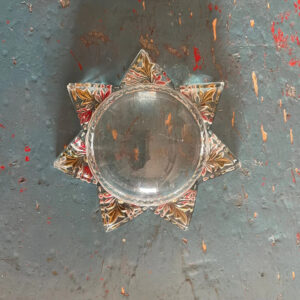 |
AmberinaA type of Art Glass in which the color varies from ruby red to amber. This effect is caused by the addition of gold into the glass which causes the red to an almost purple sometimes. Patented in 1883. |
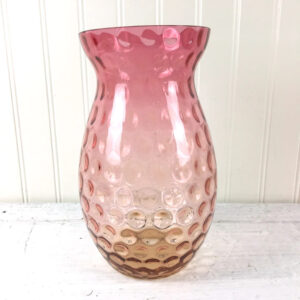 |
Pontil MarkA mark or scar left on the bottom of glass created when the glass was broken free from the metal rod when being hand blown. A bottle without one was most likely created with a mold. |
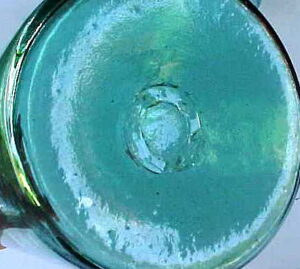 |
Watermelon GlassGlassware that is pink and green, perhaps a wine glass with a pink bowl and green stem. Or glass that is green sandwiched by pink on either side, like watermelon uranium glass. |
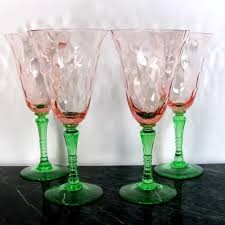 |
Milk GlassOpaque white glassware that was used for household items from bowls and mugs to candle holders and barber bottles. Big manufacturing names were Fenton, Indiana and Westmoreland. |
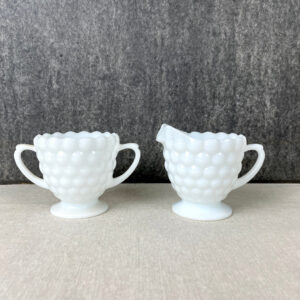 |
LatticinioAn opaque, white glass first produced in Venice during the Renaissance, often used in thread form to decorate clear glass pieces. Items produced using this technique include paperweights, glasses and marbles. |
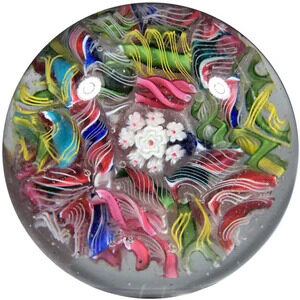 |
MillifioriDecorative glassware in which colored glass rods are fused and cut into sections to create flower patterns. An ancient technique revived in France and England in the 19th century. |
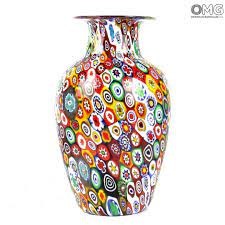 |
Fused GlassIs made when separate pieces of glass are heated in a kiln until they melt and fuse together into a single piece. |
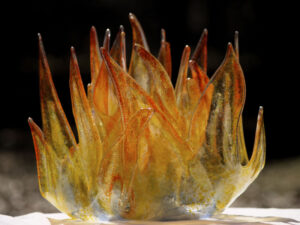 |
Let the collecting begin!
